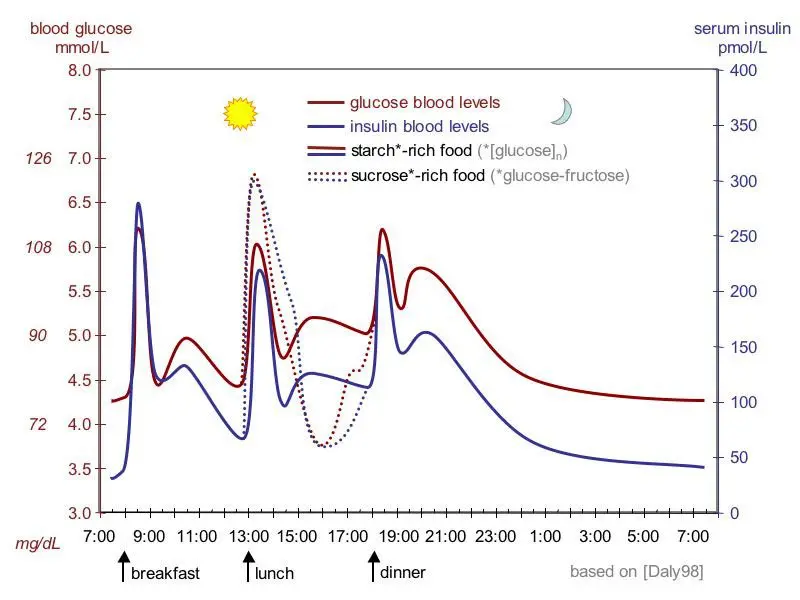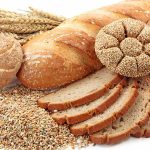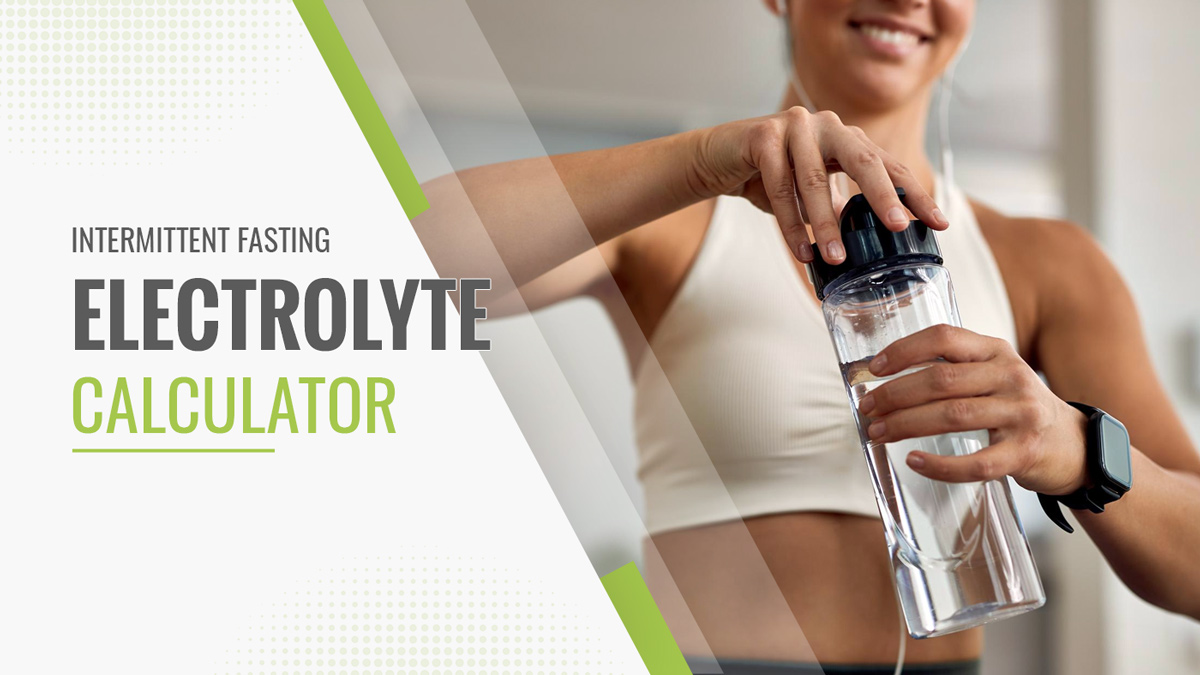Last week we looked at eating carbs at night and I showed how it doesn’t matter when you eat carbs, just that you hit your calorie and macronutrient needs throughout the day. One topic I mentioned I was questioning was if insulin sensitivity really is impaired at night or if that may yet be another myth in the bodybuilding world.
Today I will be taking a closer look at that very subject, as well as how insulin sensitivity is effected depending on the different stimulus.
Why is Insulin Sensitivity Important?
So why is insulin sensitivity important to us? Well, it’s important because the more glucose you can dispose using less insulin will be better as it will reduce fat accumulation not to mention keep you healthier. If you eat too many fast carbs you raise your blood sugar. Your body releases insulin to bring blood sugar down.
Unfortunately yo, can only bring down so much blood sugar at one time so if you consume too much of it, your body will store it as fat. Perhaps better put would be your liver and muscles can only store so much glycogen, so excess will be stored as fat. This is why those of us who do a lot of resistance training not only can eat more carbs, but should. Your muscles need those glycogen stores to be effective. But if you are inactive and you eat a lot of carbs, especially low fiber high sugar carbs, they will be stored as fat.
You see you have limited storage for carbohydrates in your body, but you have unlimited storage for fat. If you have a healthy metabolism it only takes a little bit of insulin to bring your blood sugar down. Long story short, good insulin sensitivity helps keeps you healthy and fit. Being more insulin sensitive is a good thing, there are many who believe it to be the opposite because of the way it sounds. Don’t let it fool you, the more insulin sensitive you are the better off you will be.

“Insulin sensitivity is worse at night compared to the morning”
There is research available to show that insulin sensitivity is worse at night compared to the morning. (1) What this fails to address, however, is the fact that your morning meal comes after fasting overnight while you sleep. To be more fair it would be better to look at eating a meal such as lunch compared to eating a meal at night. This is something Biston et al. (1996) (2) looked at. They took nine young subjects and spaced out their meals between 8:30 AM, 2:00 PM and 8:00 PM giving them the same amount of carbohydrates at each meal. They found that insulin sensitivity and glucose tolerance were different between the morning meal and the other two meals but there was no difference between the 2:00 PM meal and the evening meal. I think it would be fair to say it’s not the time of day the influences insulin sensitivity, but how long you’ve gone without stimulating an insulin release.
This would also fall in line with the research by Sofer et al. (3) we looked at last week where the police officers who ate the majority of their carbs at night had baseline insulin levels significantly lower than those eating carbs during the day. It was the long layoff from carbs that improved insulin sensitivity, not the time of day.
“Insulin sensitivity is decreased with age”

Exercise Increase Insulin Sensitivity
Exercise has been shown to increase insulin sensitivity during and for a while after exercise. (7) This is partially why you’ve probably heard it’s important to get some fast carbs in your system post-workout.
People believe because insulin is a potent storage hormone it will help shuttle the amino acids you consume post-workout into your muscles and help increase muscle-protein synthesis thus making insulin a very anabolic hormone. However, as I’ve shown you before insulin actually isn’t anabolic at all under normal physiological conditions on it’s own (at least in adults, it’s possible insulin can be anabolic in youth) and even in combination with protein post-workout the research shows if anything just a very small increase in protein synthesis but not a statistically significant difference. (8)
Just because insulin isn’t anabolic, however, doesn’t mean there isn’t some merit behind eating carbs post-workout. Since working out increases insulin sensitivity you are more carb tolerant post-workout. So eating a large portion of your carbs post-workout could make some sense. You just don’t need to spike insulin with 100+ grams of simple carbs as you’ve probably often heard in popular bodybuilding magazines. The only reason you would need to replenish glycogen stores that fast is maybe if you have another workout coming later that day.
Final Words
So what have we learned here today? While insulin sensitivity does tend to decrease at night it’s not because of the time of day but because of how often and how recently we have spiked insulin levels throughout the day. Exercise does increase insulin sensitivity temporarily but also long-term if it leads to a decrease in body fat. How can we use this information to our benefit? Well, it would seem like the ideal times to eat a large portion of your carbohydrates would be when you are most insulin sensitive, which would be first thing in the morning after an overnight fast and post-workout.
Wait, doesn’t this conflict with what I told you last week? You bet it does because while it would seem like there are more ideal times to consume certain nutrients, the bottom line is hitting your calorie and macronutrient needs, however, works best for you will be enough. If these ideas work well with your lifestyle it could be a good idea to work under those circumstances. If they don’t, then don’t worry about it. The rest is splitting hairs and doesn’t appear to make a significant difference. It’s kind of like meal frequency. There may be more optimal timing, but at the end of the day, I don’t believe it makes a significant difference at all.
Fact Or Fiction? Carbs At Night Make You Fat
Tip: If you're signed in to Google, tap Follow.











